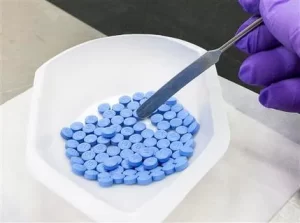In the realm of health crises, dental emergencies often don’t get the attention they deserve. Yet, when a toothache strikes with the force of a thunderbolt or an unexpected injury mars your pearly whites, the need for swift and effective dental care becomes abundantly clear. Emergency dental care is the unsung hero of the healthcare world, providing rapid responses to tooth troubles when they strike unexpectedly. If you’re experiencing severe tooth pain late at night in Wicker Park, don’t hesitate to reach out to an Emergency Dentist Wicker Park for immediate relief and care. Let’s delve into the world of emergency dental care, exploring its importance, common scenarios, and what to do when the unexpected occurs.
The Importance of Emergency Dental Care
Dental emergencies can range from sudden toothaches to broken teeth, abscesses, or even knocked-out teeth due to accidents or injuries. While some may dismiss dental issues as less urgent than other medical concerns, the reality is that oral health problems can be incredibly painful and can quickly escalate if left untreated. Ignoring a dental emergency can lead to severe pain, infection, and even permanent damage to your teeth and gums.
Emergency dental care serves a crucial role in providing immediate relief and treatment for these issues. Whether it’s relieving excruciating pain, repairing a damaged tooth, or preventing further complications, prompt intervention by a qualified dentist can make all the difference in preserving oral health and preventing long-term consequences.
Common Scenarios Requiring Emergency Dental Care
Dental emergencies can arise from a variety of situations, some of which include
Severe Toothaches
Intense and persistent toothaches often indicate an underlying issue such as an infection or abscess that requires immediate attention.
Chipped or Broken Teeth: Accidents or trauma can result in fractured or broken teeth, which may cause pain and increase the risk of infection if not treated promptly.
Knocked-Out Teeth
Knocked-out teeth, whether due to a sports injury, fall, or other accidents, demand urgent care to increase the chances of successful re-implantation.
Lost Dental Fillings or Crowns
Losing a filling or crown can expose the underlying tooth structure, leading to sensitivity, pain, and vulnerability to further damage.
Dental Abscesses
An abscess is a pus-filled sac caused by a bacterial infection, often resulting from untreated tooth decay or gum disease. It requires immediate treatment to prevent the spread of infection and potential complications.
What to Do in a Dental Emergency
In the event of a dental emergency, taking the right steps can help alleviate pain and minimize damage until you can see a dentist.
Contact Your Dentist
If you’re experiencing a dental emergency, call your dentist as soon as possible to explain the situation and seek guidance. Many dental practices have protocols in place for handling emergencies and may be able to accommodate you on short notice.
Manage Pain
Over-the-counter pain relievers like ibuprofen can help alleviate discomfort temporarily. Applying a cold compress to the outside of the mouth can also help reduce swelling and numb the area.
Handle Knocked-Out Teeth Carefully
If a tooth has been knocked out, handle it by the crown (top part) and avoid touching the root. Rinse it gently with water if it’s dirty, but do not scrub or remove any attached tissue. Keep the tooth moist by placing it in milk or saliva and seek immediate dental attention.
Protect Broken Teeth
If a tooth is chipped or broken, rinse your mouth with warm water to clean the area. If there’s bleeding, apply gentle pressure with a clean gauze or cloth. Save any broken tooth fragments if possible, and see your dentist as soon as you can.
Avoid DIY Fixes
While it may be tempting to attempt DIY solutions, such as using super glue to reattach a crown or attempting to pop an abscess, these can often do more harm than good. It’s best to leave dental work to the professionals.
Conclusion
Emergency dental care plays a vital role in addressing sudden oral health issues and providing timely relief to those in need. By recognizing the importance of prompt intervention and knowing how to respond in a dental emergency, you can protect your oral health and minimize the risk of long-term complications. Remember, when tooth troubles strike unexpectedly, swift action can make all the difference in preserving your smile.




